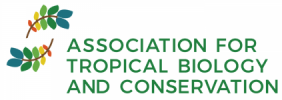Project summary
An understanding of social behavior is crucial for conservation of critically endangered large mammals. This project will explore the sociality of white rhinoceros incorporating bioacoustics, social network and genetic analysis. This research collaboration between MMU and Knowsley Safari Park will involve extensive fieldwork in Kenya, with the aim of informing management to maximize reproductive output in in- and ex-situ populations.
Project aims and objectives
The recovery of endangered taxa is mediated by reproductive output; however many populations of conservation concern exhibit high variance in reproduction. The case of the southern white rhinoceros is considered a conservation success story since it recovered from 20 individuals at the end of the 19th century to around 20,000 individuals today. Extensive resources are devoted to protecting white rhino from poachers, and tackling the illegal trade in rhino horn. In an additional effort to conserve the species, a large number of white rhinos were taken from the wild into captivity with the aim of establishing an international captive breeding programme. However, these captive populations are failing, and fewer individuals now remain in captivity than were originally taken from the wild. The failure of the captive breeding programme, combined with the poor reproductive performance of many wild populations is a concern to conservation biologists.
The factors underlying poor reproductive rates in captive rhino populations are unclear; there is currently no evidence of anomalies in reproductive physiology, or behaviour. A major impediment to understanding the factors mediating reproductive variance in any rhinoceros species, and particularly the white rhinoceros, is the paucity of studies examining social and reproductive behaviour in wild populations. White rhinoceros populations are typically small and fragmented, and rely on active conservation management to ensure their viability. Knowledge of the structure and strength of social bonds is vital in informing decisions about which individuals to move between populations or translocate to new reserves, as well as identifying individuals for concerted breeding efforts. Work at MMU has revealed regular and complex social interactions between individuals including conspicuous vocal signals. Social Network Analysis (SNA) is a prominent research tool across diverse fields such as the study of transportation systems, economics and epidemiology. Within biology, it has been used to explore diverse phenomena ranging from cellular organization and food webs to social organization.
The successful candidate will collect data from wild and captive white rhinoceros populations on physical and acoustic interactions to construct social networks and conduct noninvasive sampling for genetic analysis. Previous work by the supervisory team has established a link between genetic variance and reproductive output in black rhinoceros Microsatellite genotyping will be undertaken to resolve kinship and paternity, and neuropeptide receptor genes associated with social bonding will be examined. The successful student will receive training in genetic analysis and social network and bioacoustic analyses.
Objective 1: Identify the features of the social structure of different white rhinoceros populations, and establish whether there is breeding competition between individuals?
Objective 2: Establish the influence of genetic quality and relatedness on breeding behaviour and reproductive output.
Objective 3: Identify whether the population bottleneck experienced by the white rhinoceros led to a reduction in variance at the oxytocin receptor gene and what impact this has had on reproductive output.
Objective 4: Explore the role of vocal communication in white rhinoceros sociality and reproduction.
Specific requirements of the project
Essential
- First or upper second class honors degree and/or an MSc degree in Zoology or a related field.
- Substantial experience of independent behavioural fieldwork in remote locations.
- A full driving license.
Desirable
- Experience in at least one of: Genetic, Social network, or bioacoustic analysis or GIS/remote sensing.
- Demonstrable affinity with grassroots conservation organisations.
Student eligibility
Fully-funded studentship is only open to Home/EU students
Supervisory Team
Informal enquiries can be made to:
Dr Caroline Bettridge
Tel: +44 (0) 161 247 1198
email: c.bettridge@mmu.ac.uk
Or
Dr Bradley Cain
Tel: +44 (0)161 247 1148
email: b.cain@mmu.ac.uk
How to apply
Please quote the studentship reference: CMB2016.
Applications should be completed using the Postgraduate Research Degree Application Form.
Application Form should be emailed to: pgradmissions@mmu.ac.uk.
PLEASE NOTE that Section 9 of the application should be used to write a personal statement outlining your suitability for the study, what you hope to achieve from the PhD and your research experience to date.
Closing date
31 March 2016
Interviews
Late April or early May 2016




